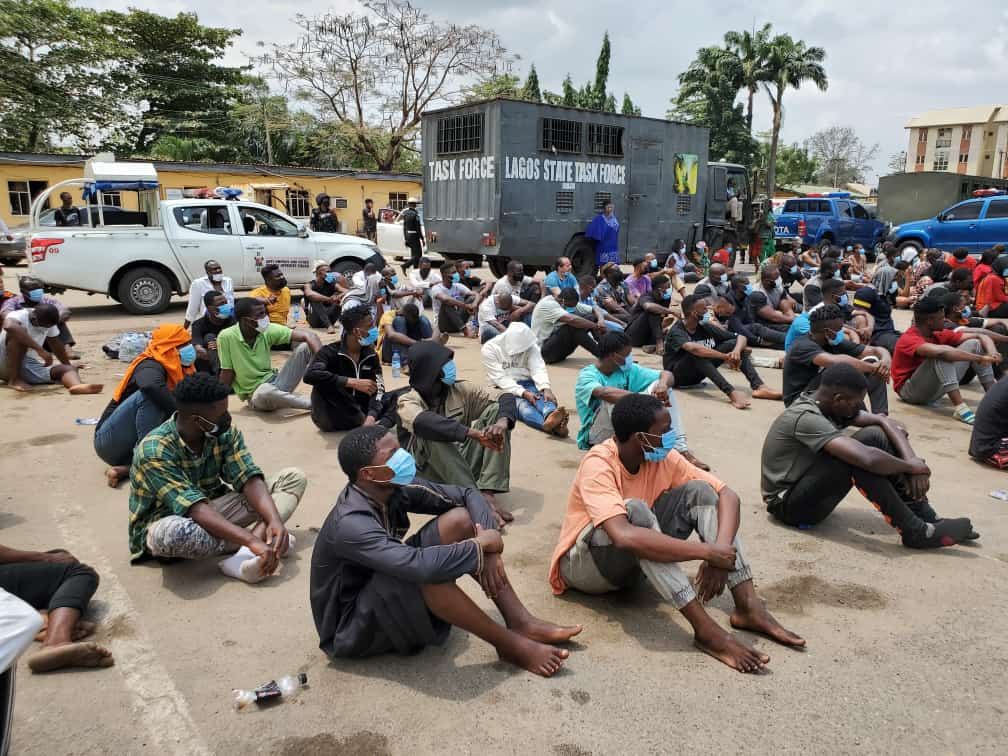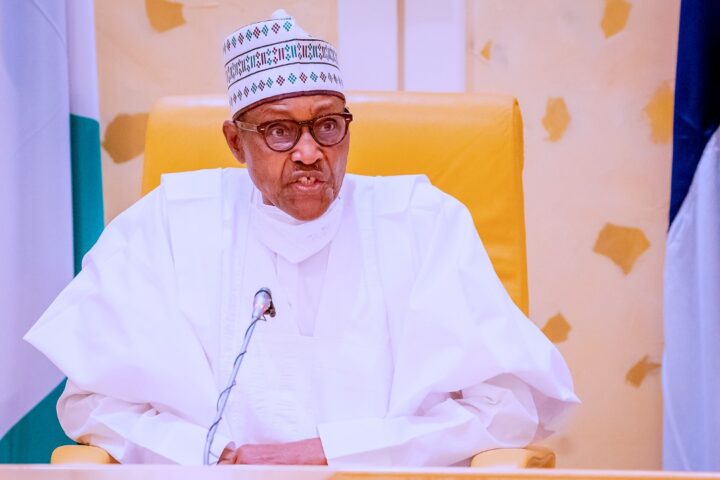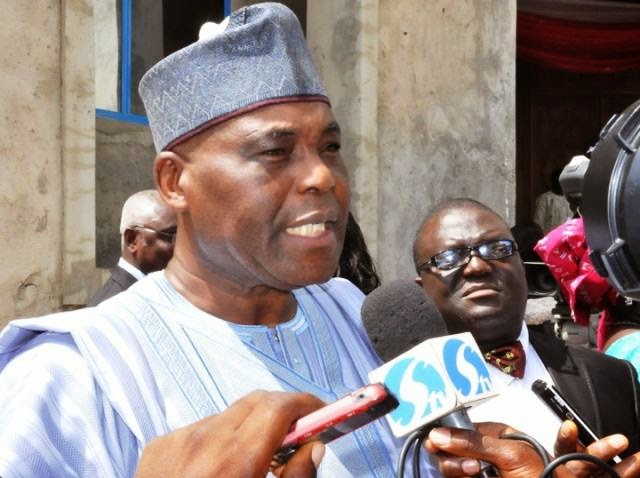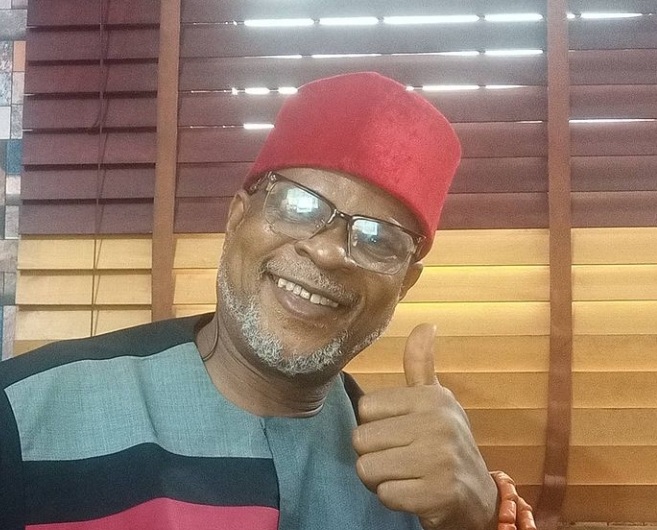The parade of suspects by law enforcement agencies in Nigeria, especially the police, has more or less become a norm across the country.
This is despite the argument by lawyers that the parade of suspects contravenes section 36 of the 1999 constitution (as amended), which guarantees presumption of innocence of suspects until proven guilty by a competent court of law.
For instance, in the popular case of Ndukwem Chiziri Nice v attorney-general of the federation (AGF) (2007), Adebukola Banjoko, the judge, ruled that the parade of the suspect before the media was “uncalled for and a callous disregard for his person”.
‘WE HAVE TO SHOWCASE OUR WORK’
Advertisement
Despite court judgements declaring the parade of suspects as unlawful, the police have continued with the practice and have even tried to explain why the parade is necessary.
On May 27, while addressing journalists on the achievements of the police under his leadership, Usman Baba, the inspector-general of police, said it’s to show what has been done in tackling crime.
“You see, we do this media trial because we have to blow our trumpet. If we don’t blow it, nobody will blow it for you. We blow it to showcase what we do,” he said.
Advertisement
LAGOS PROHIBITS PARADE OF SUSPECTS
In 2007, Lagos enacted the Administration of Criminal Justice Law (ACJL), which aims to achieve efficiency in the handling of crime cases.
Eight years later, former President Goodluck Jonathan signed the Administration of Criminal Justice bill into law — an act which some stakeholders believe drew inspiration from Lagos state.
Since the enactment of the ACJA in 2015, some states have domesticated the Act.
Advertisement
The ACJA 2015 makes provisions for courts in the federal capital territory (FCT) and other federal courts, while the ACJL is for state courts.
In September 2021, Sanwo-Olu, governor of Lagos, signed the Administration of Criminal Justice (Amendment) Bill, 2021 bill into law.
Section 9(a) of the law states: “As from the commencement of this law, the police shall refrain from parading any suspect before the media”.
The provisions of the law also include the conduct of criminal proceedings through audio and video conferencing platforms, and it also stipulates protective measures for victims and witnesses.
Advertisement
THE QUESTION OF POLICE COMPLIANCE
In recent times, governors of the southern region have called for the creation of state police and the devolution of more powers to states for control of law enforcement agencies.
Advertisement
There have been concerns that since the Nigeria Police Force (NPF) is a federal law enforcement agency, officers in Lagos may not feel obliged to comply with a law enacted by the state government.
Reacting to the development, Inibehe Effiong, a human rights lawyer, said the police have a duty to obey and enforce all laws validly enacted by the government, either state or federal.
Advertisement
“The police have a duty to obey all laws validly made by the government. If the police say that they are not okay with the new Administration of Criminal Justice Law in Lagos, they can approach the court,” he said.
“It is not only the ACJA that the police rely on for prosecution. For example, in Lagos magistrate’s court, police prosecute and in those courts, they use the ACJL.
Advertisement
“Beyond that, the point is even that the parade of suspects is unconstitutional. If they believe they are not bound by the law of Lagos state or house of assembly, are they not bound by the provisions of the constitution, which guarantees constitutional right to presumption of innocence?
“In any event, the police are answerable both to the federal and state governments, because the Nigeria Police Council comprises the president and 36 governors. Governors also have a constitutional role in the management and running of the police.”
Corroborating the views of Effiong, Ayo Ademiluyi, a Lagos-based human rights lawyer, said officers under the jurisdiction of Lagos are obligated to obey the law.
“The reality is that as long as you are a police officer operating within the jurisdiction of Lagos state, you have to comply with that law,” he said.
“The Nigeria Police Force, Lagos command, is obligated to obey that law. If they feel otherwise, they can approach the court to strike out any provision they believe that it is against their own Police Act.
“We welcome this development and it is a social response to the #EndSARS protest.”
POLICE REACT
When TheCable reached out to Hakeem Odumosu, Lagos police commissioner, he said the police have reasons for parading suspects, but added that the force has a responsibility to enforce all laws.
“Law is law. Our responsibility is to enforce all laws that are legally made. We have discussed it even at the higher level. We know how to balance it,” he said.
‘The argument of civil liberty associations and human rights groups is that we don’t parade them, because they still remain suspects, and if at the end of the investigation, they are charged to court and they are freed on acquittal, we must have violated their human rights.
“We do it (parade of suspects) at times as a deterrent to others. We had a tripartite discussion on it and we have agreed on the position forward.”
Asked to state in clear terms if the police will comply with the new law, Odumosu said: “We are to enforce all laws that are legally passed. In complying with it now, there are some stages and we are working out all those ones with the Lagos police command, ministry of justice, as well as the house of assembly. We are ironing out the grey areas.”
Add a comment






